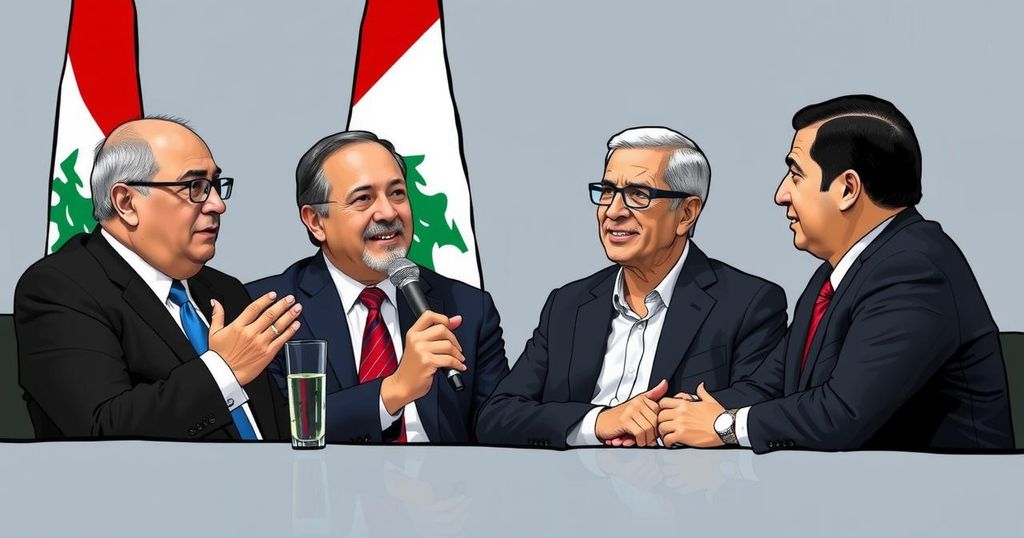Lebanese leaders are negotiating a new presidential election, beset by political divisions and economic turmoil, with Army Chief Joseph Aoun viewed as a potential frontrunner despite considerable opposition. International diplomats urge consensus to overcome a prolonged vacancy in the presidency, which has lasted over two years amid ongoing crises in Lebanon.
On Wednesday, Lebanese leaders engaged in discussions a day prior to a parliamentary session aimed at electing a new president, although the ongoing political crisis casts doubt on the likelihood of reaching a consensus. The nation has been without presidential leadership for over two years, exacerbated by the intense rivalry between Hezbollah and opposing factions. Amidst speculation, Army Chief Joseph Aoun is perceived as a leading candidate. His supporters believe he could effectively manage military operations in southern Lebanon following the conditions laid out in a recent ceasefire. However, some political entities remain hesitant to endorse him.
Lebanon’s complex political landscape, which still bears wounds from the civil war, has seen attempts to elect a president thwarted due to internal divisions. In recent developments, international pressure has intensified to finalize the selection of a leader, with French and American envoys advocating for a united front among Lebanese factions. Aoun is reportedly favored by the U.S., with limited backing from France and Saudi Arabia. The political maneuvering includes efforts from Saudi Arabia to sway resistant political groups toward supporting Aoun’s candidacy.
As the political stage prepares for another attempt at presidential voting, Prime Minister Najib Mikati expressed optimism about the possibility of electing a president. The parliamentary dynamic underscores the need for consensus, particularly among the country’s major Christian parties. Although Joseph Aoun is being considered, opposition remains strong from some factions, including the Free Patriotic Movement led by Gebran Bassil. Other potential candidates are under discussion, showcasing the fragmented nature of Lebanese politics.
Lebanon is experiencing a prolonged political and economic crisis, marked by a vacancy in the presidency for over two years. The political climate is heavily influenced by sectarian divisions among various factions, notably Hezbollah and its rivals, which complicates the electoral process. Historical context reveals that Lebanese leaders typically coalesce around a consensus candidate before parliamentary elections can succeed. The current situation is further compounded by external pressures from France, the United States, and other nations advocating for a new president to facilitate necessary reforms.
The quest for a new Lebanese president remains fraught with challenges amidst political discord and external intervention. Joseph Aoun has emerged as a leading figure, yet significant opposition persists. As parliament contemplates this pivotal election, the future leadership will significantly impact the potential for governance and reform in Lebanon’s deeply fragmented political environment. The expectation of external influence in Lebanon’s political landscape reflects longstanding concerns regarding sovereignty and the true will of the people.
Original Source: www.barrons.com






